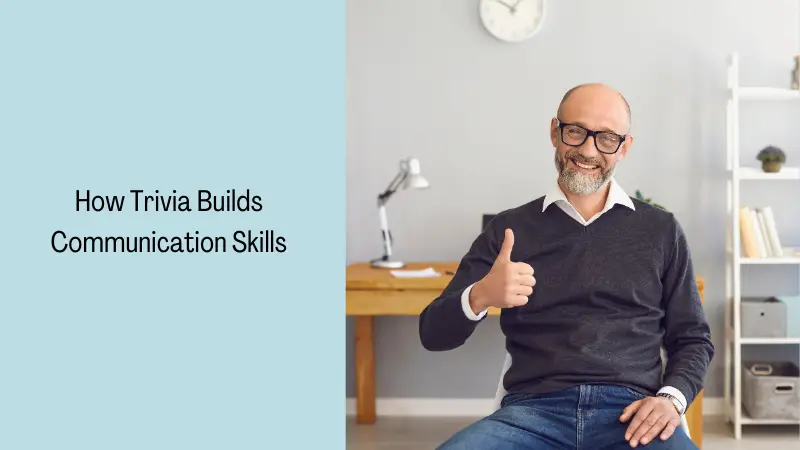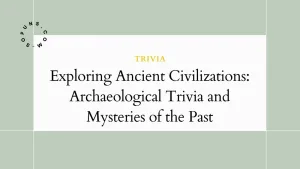For language lovers and trivia buffs alike, the world of linguistics offers a fascinating playground of obscure facts, surprising discoveries, and playful curiosities. From the complex evolution of languages over centuries to the influence of prolific linguists, there are countless opportunities to marvel at the intricacies and quirks of human communication.
Delving into the Diverse Origins of Language
All languages have an origin story. While historians continue to uncover how ancient languages developed, we already know some fascinating facts about their beginnings. For instance, Proto-Indo-European is the reconstructed common ancestor of languages spoken across Europe and India today. Several root words in English actually trace back to Proto-Indo-European, including “mother,” “father,” and “sister.”
The influences on English itself are complex and multicultural. Old English drew from Germanic languages after the 5th century AD Saxon invasion. Then the Norman Conquest in 1066 infused French into English. Further colonization and globalization added Latin, Greek, and many other languages into the mix. This blending of cultures continues today with each new generation’s slang.
Celebrating Endangered Native Languages
While many global languages have spread widely, UNESCO estimates over 40% of the world’s languages today are endangered. As small communities assimilate or populations dwindle, unique native languages can disappear within a few generations.
Groups like the Living Tongues Institute work actively to preserve endangered languages by documenting them. For example, the last fluent speaker of the Klallam language of North America’s Pacific Northwest, Hazel Sampson, passed away in 2014. But linguists had already worked with Sampson to develop a Klallam dictionary and resources to teach it.
The Quirky Complexity of Grammar Rules
From commas to clauses, the mechanics of language offer plenty of fodder for discussion. Prescriptive grammar guides have been debated for centuries. Understanding how rules develop provides insight into the very nature of language itself.
For example, the prohibition of split infinitives in English was popularized in the 19th century even though writers had been splitting them for hundreds of years. Today, most grammar guides accept flexible positioning of adverbs. As English continues to evolve, examining the reasoning behind grammar rules reveals the dynamic adaptability of language.
Breakthrough Moments in Linguistics History
In addition to language evolution itself, there are pivotal discoveries that advanced the field of linguistics. In 1786, Sir William Jones identified the connection between Sanskrit, Greek, and Latin. This groundbreaking insight into the relatedness of languages within language families laid the foundation for comparative linguistics.
In the 1950s, Noam Chomsky’s theory of universal grammar transformed perspectives on how underlying syntactic structures influence all human languages. Decades later, Steven Pinker continued exploring the origins and neurology of language acquisition. Understanding how children learn language has furthered treatment for many learning disorders.
The Value of Linguistic Diversity
There are over 7,000 languages spoken worldwide. While linguistic variation can create barriers, it also represents meaningful diversity. The plethora of languages in existence today illustrates the multitude of ways humans have developed to communicate shared experiences.
Exploring different linguistic traditions fosters cultural appreciation. For instance, the Athabaskan languages of North America have over 40 distinct words for types of snow. These nuanced terms reflect how attuned the speakers are to their surroundings. Linguistic diversity enriches global communication and human collaboration.
How Trivia Builds Communication Skills
Learning linguistic trivia isn’t just fun for curiosity’s sake. When we engage with language facts, we strengthen core skills. Thinking about grammar and word origins reinforces the mechanics that underpin fluent reading and writing. Identifying patterns across different languages exercises analytic abilities.

And language trivia sparks meaningful conversations. Sharing obscure facts provides an inclusive way to exchange perspectives. Whether discussing the ever-changing OED with friends or debating punctuation with colleagues, linguistics trivia builds rapport through intellectual discovery.
Q&A: Test Your Language Knowledge
Ready to put your linguistics trivia knowledge to the test? Here are some sample questions to get those mental gears turning:
- Which language has the most words for “the”?
- What is the name for words that sound like what they describe, like “buzz”?
- Which popular word was originally Arabic for “clock”?
- True or False: Split infinitives are always grammatically incorrect.
- Who wrote the first modern English dictionary in 1755?
How did you do? Did any trivia questions catch you off guard? Finding out the answers is just another way to keep engaging with the boundless linguistic playground.
Bridge-Building Through Wordplay
At its core, shared language connects people. When we delight together in the quirks of words and origins of phrases, we strengthen empathy for our shared human experiences. Obscure linguistics facts can seem frivolous on the surface. But nurturing curiosity and intellectual play allows us to build common ground.
In an increasingly polarized world, lingual curiosity offers opportunities for joyful connection. We can share our linguistic discoveries to spark friendly debates, engage young minds, and appreciate both the diversity and interconnectedness of human languages worldwide.
After all, words themselves have the power to divide us or bring us together. Choosing to come together in our shared appreciation for the magic of language is a bridge-building opportunity we can all embrace.
FAQ
Here are some frequently asked questions about language and linguistics trivia:
Why is linguistics trivia interesting?
Linguistics trivia provides fun, surprising facts about language and communication. It shows the creativity of human expression and helps language enthusiasts appreciate the diversity and interconnectivity of world languages.
What are some examples of good linguistics trivia?
Some examples of fun linguistics trivia include the most common letters and words across languages, word origins, lipograms (writing that avoids certain letters), longest words, name-related trivia, palindrome trivia, and uncommon grammar rules.
Where can I find resources for linguistics trivia?
Great resources include language blogs like Babbel Magazine, dictionaries like Merriam-Webster, books like Schott’s Miscellany, podcasts like The Allusionist, social media accounts for language organizations, language learning apps, and websites for linguistic societies.
How can I use linguistics trivia in conversation?
To smoothly incorporate linguistics trivia in conversation, listen for relevant keyword opportunities. For example, if someone mentions grammar or etymology, you can add a related fact. Make sure to keep the focus on fun rather than showing off expertise.
Why is linguistic diversity important?
Valuing linguistic diversity allows us to appreciate the creativity of human expression in different cultures. It also encourages active preservation efforts for endangered languages. Maintaining diverse languages promotes nuanced global communication and progressive social values.
In Conclusion
Linguistics trivia offers an engaging gateway into exploring the richness of human language. When we open our minds to learning obscure language facts, we gain new perspectives on diverse communication traditions worldwide. Stay curious, nurture a spirit of playful linguistic discovery, and always keep building connections with others while strengthening your own knowledge base. The world of words has so much fascinating terrain left to cover. Let’s keep exploring together!






No Comments